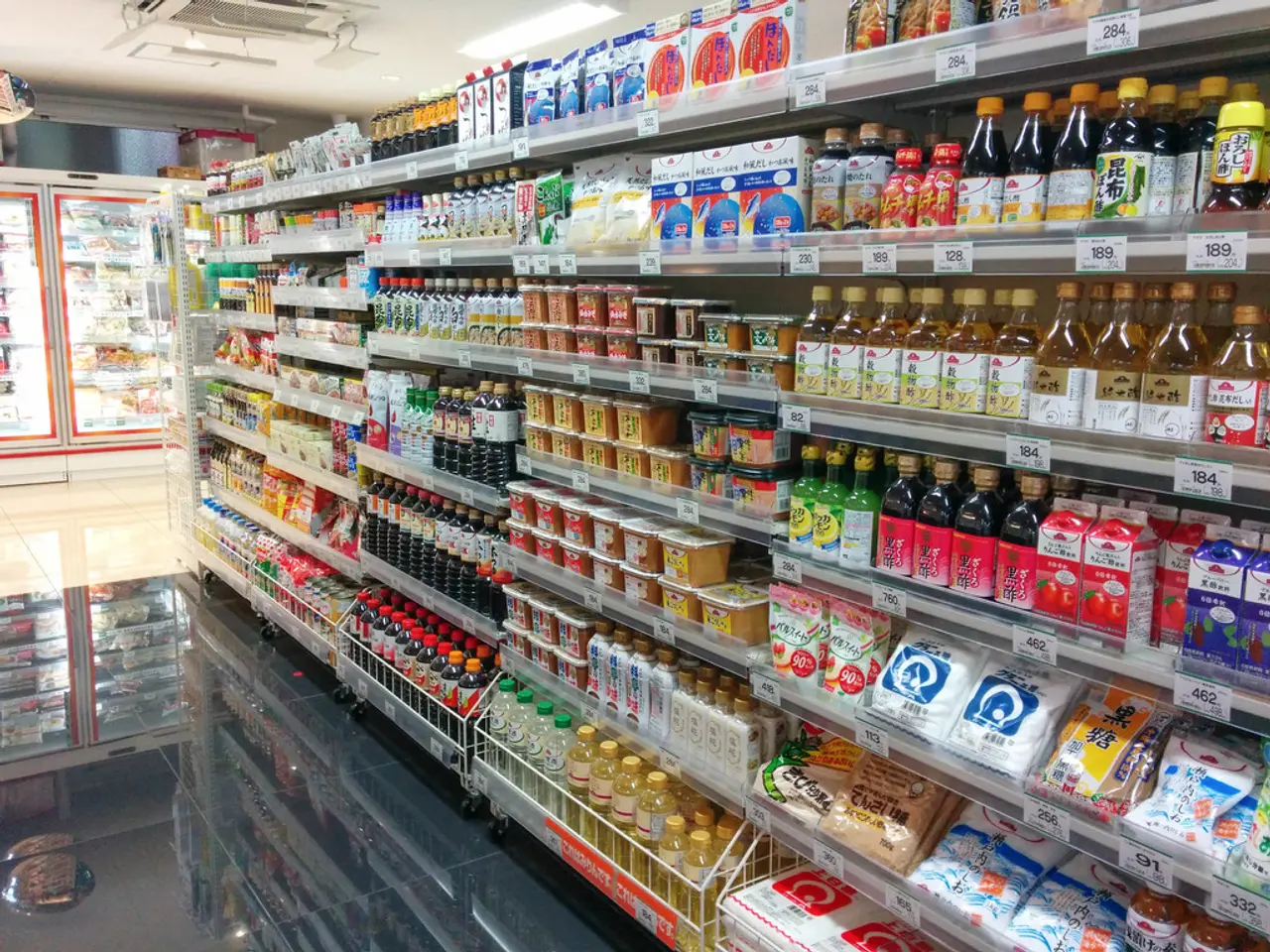Merger negotiations between Grab and GoTo experience delays due to increasing antitrust vigilance
In a significant development for Indonesia's digital economy, the proposed merger between Grab and GoTo Group is currently facing regulatory and antitrust challenges. The merger, which would create a dominant player in sectors like ride-hailing, e-commerce, and digital payments, has stalled due to competition concerns raised by Indonesian regulators [2][3].
The stalemate comes as Grab, now significantly larger than GoTo, has indicated that an acquisition of GoTo is "an obvious question" but appears not to be moving forward with the deal [1]. This situation reflects a broader trend of increasing regulatory scrutiny over digital economy consolidations in Southeast Asia, where authorities are wary of monopolistic behaviour that could harm competition and consumer welfare.
If the merger were to go through, the combined entity could control upwards of 85 percent of the market in digital payments and food delivery, raising antitrust concerns [2][3]. GoTo's 73.9 percent foreign ownership is unlikely to present additional regulatory barriers from a competition law perspective. However, Indonesia's merger review process differs significantly from other regional jurisdictions, particularly in terms of timing and process [2][3].
The Indonesian competition law does not explicitly recognize the 'failing firm' defense, adding another hurdle to the merger's progress. The regulatory framework retains some flexibility for exceptional circumstances, but the bar appears to be set quite high [2][3]. The implications of the Grab-GoTo merger discussions extend beyond the two companies themselves, potentially affecting other major Southeast Asian digital economy players such as Lazada, TikTok Shop, and emerging fintech challengers.
The prevailing legal framework remains focused on substantive issues, whether a transaction gives rise to market dominance or results in anticompetitive effects, rather than the nationality of ownership [2][3]. Without coordinated antitrust/competition frameworks and harmonised digital economy policies, consolidation risks entrenching monopolies and exacerbating inequality among ASEAN markets.
The competitive response to the potential Grab-GoTo merger could reshape the entire regional landscape, with companies like Sea Limited potentially accelerating fintech expansion, deepening integration across platforms, or pursuing alliances/acquisitions to maintain market share. Larger, regionally integrated platforms may be better equipped to compete with dominant Chinese and Western tech giants, offering scale, capital access, and network effects that local players cannot achieve in isolation.
However, divergent approaches to platform consolidation among ASEAN member states risk fragmenting the region's digital economy and undermining integration efforts. The merger, if approved, would create unprecedented levels of market concentration across multiple sectors in Indonesia, potentially triggering a new phase of consolidation, competitive intensity, and capital redeployment, ultimately reshaping Southeast Asia's digital economy landscape into a more concentrated, strategically segmented environment.
Recent regulatory rejections in Singapore and Taiwan could suggest that antitrust enforcement is becoming increasingly stringent across Southeast Asia, though the implications for Indonesia remain uncertain. The KPPU only conducts merger reviews on a post-transaction basis and lacks the authority to block a merger prior to its completion unless the parties voluntarily engage in a pre-merger consultation.
In ride-hailing, GoTo maintains market leadership, with Grab serving as its primary rival. The stalemate in the Grab-GoTo merger discussions could provide an opportunity for other players to gain market share and challenge the dominance of these two companies.
In conclusion, the stalled Grab-GoTo merger highlights the growing antitrust concerns in Southeast Asia's digital economy. As regulators seek to balance the benefits of scale against risks to market competitiveness, the implications of this situation extend far beyond Indonesia, potentially reshaping the digital economy landscape across the region.
- The proposed merger between Grab and GoTo Group faces regulatory and antitrust challenges in Indonesia, causing a stalemate due to concerns over monopolistic behavior and potential harm to competition and consumer welfare.
- If the merger were to go through, the combined entity could dominate up to 85% of the market in digital payments and food delivery, raising additional antitrust concerns.
- GoTo's significant foreign ownership is unlikely to present additional regulatory barriers from a competition law perspective, but the Indonesian regulatory framework is more scrutinizing than other regional jurisdictions.
- The implications of the merger extend beyond the two companies, potentially affecting other major Southeast Asian digital economy players like Lazada, TikTok Shop, and emerging fintech challengers.
- The prevailing legal framework in Indonesia remains focused on substantive issues like market dominance and anticompetitive effects, rather than the nationality of ownership.
- In ride-hailing, the stalemate in the Grab-GoTo merger discussions could present an opportunity for other players to gain market share and challenge the dominance of these two companies.




